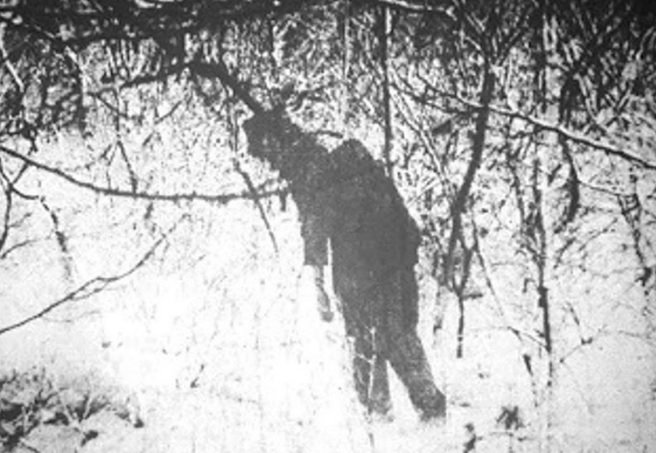General
Humanity is absolutely not ready for the next supervolcano eruption

Even if we manage to avoid self-destruction by another world war or climate change, there are many more existential threats for which we would do well to prepare.
Most often you can hear that an asteroid will fly to us from space, so humanity began to prepare for this event by developing monitoring systems, because we do not want to end up like dinosaurs.
But in a recent study published in Nature, experts say the asteroid hazard has overshadowed one that is much more likely: “Over the next century, large-scale volcanic eruptions are hundreds of times more likely than asteroid and comet impacts combined”.
Governments and space corporations spend hundreds of millions of dollars annually on planetary defense. For example, the NASA DART mission, aimed at testing the technology of changing the orbit of an asteroid, which will happen as early as October, cost about $330 million.
It’s a small price to pay considering this technology could save us from being killed by an asteroid in the future, but scientists see the problem that there is no comparable investment to prepare for super-eruptions.
Volcanoes, unlike asteroids, are already here on Earth. They are not just scattered all over the planet, but often surrounded by picturesque landscapes that hide their destructive potential.
According to the US Geological Survey, the last supereruption occurred about 22,000 years ago, and their frequency averages about every 15,000 years, which means that we may well live at a time when a new supereruption can occur.
The last sufficiently strong eruption, falling short of receiving the prefix “super”, with a magnitude of 7, occurred in 1815 on Mount Tambora in Indonesia.
About 100,000 people died then, and the ash and dust thrown into the atmosphere lowered global temperatures by an average of about 1 degree Celsius, which is why the next year went down in history as the “Year without a summer”, followed by crop failures and, as a consequence, famine, outbreaks of disease and violence.
Yes, monitoring of volcanic activity has improved since then, as has our ability to mobilize global support for disaster relief, but that may (most likely will) not be enough to offset all the risks we now face.
he world’s population has increased eightfold since the early 1800s, and some large urban areas flourished near dangerous volcanoes.
The globalization of various processes, including trade, has led to overall development, but can become a problem, as shocks in one part of the planet can cause food shortages and other crises in others.
In a 2021 study based on ancient ice core data, researchers found that the intervals between powerful eruptions are hundreds or even thousands of years shorter than previously thought.
More such studies, experts believe, are needed, as well as interdisciplinary work aimed at developing tools for monitoring and predicting consequences by identifying risks for trade, agriculture, energy and infrastructure, as well as warning.
In general, scientists believe that humanity today is completely unprepared for this danger.
General
Experts Declare Experimental Cancer Vaccine Based On mRNA Technology Is ‘Safe and Effective’

A new cancer vaccine based on Covid mRNA vaccine technology
which has yet to be clinically tested has already been declared “safe
and effective” by the British government.
Known as ‘LungVax’,
the new vaccine is being developed by the University of Oxford, the
Francis Crick Institute and University College London, and is expected
to be the first of a huge range of new cancer vaccinations available in
the near future.
Research scientists developing the ‘groundbreaking’ lung cancer
vaccine claim it will be effective in preventing up to 90 per cent of
cases by training the immune system to locate and attack early signs of
disease.
Lung cancer cells look different from normal cells due to having ‘red
flag’ proteins called neoantigens. The LungVax vaccine will carry a strand of DNA which trains the immune system to recognize these neoantigens on abnormal lung cells.
It will then instruct the immune system to destroy these cells and stop lung cancer.
Professor Tim Elliot, lead researcher at the University of Oxford, said: ‘Cancer
is a disease of our own bodies and it’s hard for the immune system to
distinguish between what’s normal and what’s cancer.
‘Getting the immune system to recognize and attack cancer is one of the biggest challenges in cancer research today.”
Elliot admitted the new vaccine is based on technology used to create the Covid vaccine.
‘This research could deliver an off-the-shelf vaccine based on
Oxford’s vaccine technology, which proved itself in the Covid pandemic.
Remarkably, given the disastrous health consequences for those
vaccinated with the experimental Covid vaccines, Eilliot praised the
mRNA roll out as a success.
‘If we can replicate the kind of success seen in trials during
the pandemic, we could save the lives of tens of thousands of people
every year in the UK alone.’
Researchers have been granted up to £1.7 million from Cancer Research UK and the CRIS Cancer Foundation.
The team will receive funding for the study over the next 2 years to
support lab research and initial manufacturing of 3,000 doses of the
vaccine at the Oxford Clinical BioManufacturing Facility.
If successful, the vaccine will move straight into a clinical trials,
involving those at biggest risk of disease, such as current and former
smokers who currently qualify for targeted lung health checks in some
parts of the UK.
General
TV Host Demands Gov’t ‘Take Control’ of Elon Musk’s X To ‘Shut Down’ Conspiracy Theories

Elon Musk’s X must be “shut down” by government because dangerous “conspiracy theories” are spreading on the social media platform, according to British TV host Jeremy Vine.
“If there any argument to say, and this will sound crazy, but
China does it, we’ve got to now take control of Twitter and shut it down
for the time being,” said Vine.
Vine made the comments earlier this week during a heated debate
regarding speculation surrounding the health and whereabouts of Kate
Middleton, the Princess of Wales.
Boomers have become obsessed with speculating that Middleton has died or is severely unwell and that the Royal Family is hiding it because she hasn’t been seen in months after an operation.
The manipulation of a series of photo of Middleton and her children also only served to fuel the rumors, as some sources close to the princess claimed she had been murdered by the royal family.
However, instead of dismissing the whole issue for what it is, a pointless distraction that will disappear once Middleton makes a public appearance around Easter, Vine called for draconian measures.
Modernity report:
Ah yes, the Communist dictatorship of China, which shuts down the Internet to clamp down on dissent and enhance its repression of undesirables.
That’s definitely who we should be mimicking, Jeremy.
Throughout the COVID pandemic, Vine’s show was a platform for some of the most vulgar, authoritarian drivel imaginable.
One show asked if children who are unvaccinated should be banned from schools or made to wear special badges.
Another asked, “Is it time to ban the unvaccinated from traveling?”
Vine has made a name for himself as being a dutiful amplifier of regime messaging, while his annoying side hobby of biking around London looking to film confrontations with motorists has also angered many.
-

 Ghosts2 years ago
Ghosts2 years agoZozo: The Ouija Board Demon
-

 Space2 years ago
Space2 years agoScientists claim to have found the answer what existed before the Universe
-

 Ghosts2 years ago
Ghosts2 years agoOld Coot of Mount Greylock
-
Archaeology1 year ago
New discoveries at Ekʼ Balam during conservation works
-

 General3 years ago
General3 years agoUC San Francisco engaging in horrifying experiments, organ harvesting of live babies in the name of “science”
